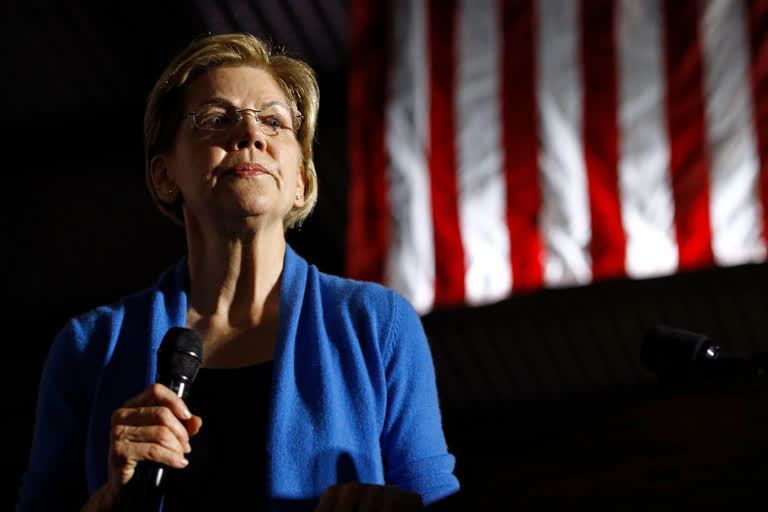Washington: Elizabeth Warren, who electrified progressives with her “plan for everything” and strong message of economic populism, dropped out of the Democratic presidential race on Thursday, according to a person familiar with her plans. The exit came days after the onetime front-runner couldn't win a single Super Tuesday state, not even her own.
The Massachusetts senator has spoken with Vermont Sen. Bernie Sanders and former vice president Joe Biden, the leading candidates in the race, according to their campaigns. She is assessing who would best uphold her agenda, according to another person who requested anonymity to discuss private conversations.
Read also: Biden wins Minnesota, surges in South; Sanders wins Colorado
Warren's exit all but extinguished hopes that Democrats would get another try at putting a female nominee up against President Donald Trump.
For much of the past year, her campaign had all the markers of success, robust poll numbers, impressive fundraising and a sprawling political infrastructure that featured staffers on the ground across the country. She was squeezed out, though, by Sanders, who had an immovable base of voters she needed to advance.
Read also: Biden wins big, Sanders stays put: Key takeaways from US primaries
Warren never finished higher than third in the first four states and was routed on Super Tuesday, failing to win any of the 14 states voting and placing an embarrassing third in Massachusetts, behind Biden and Sanders.
Her exit from the race following Minnesota Sen. Amy Klobuchar's departure leaves the Democratic field with just one female candidate: Hawaii Rep. Tulsi Gabbard, who has collected only one delegate toward the nomination. It was an unexpected twist for a party that had used the votes and energy of women to retake control of the House, primarily with female candidates, just two years ago.
Warren's campaign began with an enormous promise that she could carry that momentum into the presidential race. Last summer, she drew tens of thousands of supporters to Manhattan's Washington Square Park, a scene that was repeated in places like Washington state and Minnesota.
She had a compelling message, calling for “structural change” to the American political system to reorder the nation's economy in the name of fairness. She had a signature populist proposal for a 2% wealth tax she wanted to impose on households worth more than $50 million that prompted chants of “Two cents! Two cents!" at rallies across the country.
Warren, 70, began her White House bid polling near the back of an impossibly crowded field, used wonky policy prowess to rocket to front-runner status by the fall, then saw her support evaporate almost as quickly.
Her candidacy appeared seriously damaged almost before it started after she released a DNA test in response to goading by Trump to prove she had Native American ancestry.
Instead of quieting critics who had questioned her claims, however, the test offended many tribal leaders who rejected undergoing the genetic test as culturally insensitive, and it didn’t stop Trump and other Republicans from gleefully deriding her as "Pocahontas".
Warren also lost her finance director over her refusal to attend large fundraisers, long considered the financial lifeblood of national campaigns.
Still, she distinguished herself by releasing dozens of detailed proposals on all sorts of policies from cancelling college debt to protecting oceans to containing the coronavirus. Warren also was able to build an impressive campaign war chest relying on mostly small donations that poured in from across the country -- erasing the deficit created by refusing to court big, traditional donors.
As her polling began improving through the summer. Warren appeared to further hit her stride as she hammered the idea that more moderate Democratic candidates, including Biden, weren’t ambitious enough to roll back Trump's policies and were too reliant on political consultants and fickle polling. And she drew strength in the #MeToo era, especially after a wave of female candidates helped Democrats take control of the US House in 2018.
With inputs from AP



